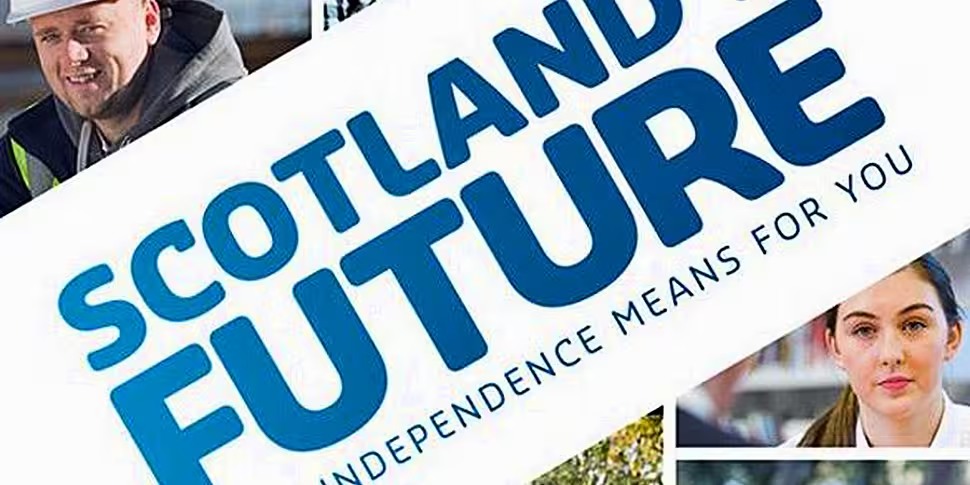Ballot papers have been sent out in the Scottish independence referendum, as polls say Scottish First Minister Alex Salmond won last night's final TV debate.
There were angry exchanges over North Sea oil, the health service and currency - but snap polls gave Mr Salmond the edge over the former Chancellor Alistair Darling - the leader of the 'Better Together' campaign.
Postal ballots are now being sent out ahead of the September 18th poll.
The 90-minute debate, hosted by the BBC in front of an audience of 200 at Glasgow's Kelvingrove Museum and Art Gallery, offered both men a key opportunity to appeal to voters.
Answering questions on the currency union, Mr Salmond said "No one can stop us using the pound sterling, it's an internationally tradeable currency. I'm seeking the best option for Scotland, so our prosperous economy keeps the pound sterling."
Mr Darling replied "You are taking a huge risk if you think it is just all going to fall into place. I think the currency union would be bad for Scotland because our budget would have to be approved not by us, but what would then be a foreign country."
Both men also clashed over a "plan B" if a currency union failed, with Mr Salmond claiming he had three alternative options, including a Scottish currency, a flexible currency union and a fixed exchange rate, and also hinting at a refusal to meet debt obligations if a formal agreement could not be reached.
Mr Darling also admitted Scotland could still use sterling, even if an agreement failed.
During the debate, Mr Salmond used the tactic of walking out from behind his rostrum to answer questions put by members of the audience.
Mr Darling questioned North Sea oil revenue figures provided by the Yes campaign, and said "You are promising all sorts of things on the basis of a revenue that is very volatile. To rely so much on something...it is gambling our children's future which is totally unacceptable."
Both men had promised to create a fairer Scotland in their opening statements at the start of the debate.
Mr Salmond said "We are a rich nation, a resourceful people. We can create a prosperous nations and a fairer society, a real vision for the people of Scotland.
"This is our time, it's our moment, let us do it now."
The former Chancellor replied "I know people want change, but they also want security on jobs, on pensions, on their children's future. A good line is not always a good answer, it's answers now we need."
He had questioned Mr Salmond on currency plans for an independent Scotland in the first TV debate on August 5th.
Mr Salmond also targeted his opponent's links to the Westminster establishment, accusing the life-long Labour politician of being "in bed with the Tory party".
Mr Darling drew on his experience as UK Chancellor to warn of the risks of going it alone - including over-reliance on unpredictable oil revenues and vulnerability to economic turmoil like that of the 2008 global financial crisis.
Voters have to register to cast postal ballots by September 3th, meaning some could cast their votes within days.
A Guardian/ICM poll gave the debate to Mr Salmond with 71% of the vote. Mr Darling was widely judged to have won the first.
A poll of polls, carried out before the debate, put 39% in favour of Scottish independence, with 50% against and another 11% undecided.
Academic and author Dr Matt Qvortrup spoke to Newstalk Breakfast earlier about the debate and how the leaders addressed the issue of currency for a potential independent Scotland.
Originally published 6:32am









